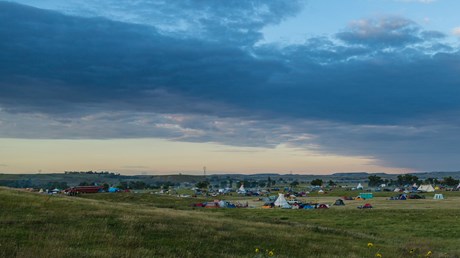Tonya White Mountain lives out the Christian call to be a peacemaker.

Assemblies of God pastor Tonya White Mountain regularly makes the nearly two-hour drive from her home on the Standing Rock Sioux reservation to Bismarck, North Dakota, the closest place to shop at Walmart and get medical checkups.
During a recent trip, a truck tried to drive her off the road. After her twin sister recounted several incidents of aggression toward Native American drivers and cars with bumper stickers opposing the planned Dakota Access pipeline (DAPL), she realized it might not have been a random case of road rage.
For locals like White Mountain, the contentious pipeline debate isn’t constrained to the protest sites covered on the news. The tension spills over to the roadways, the hair salons, and even the church pews.
“It’s been divisive, plain and simple,” said White Mountain, who has lived on the reservation since 1991 and served for two decades with the tribal housing authority. “Over the years, I thought this whole race issue, this ‘us and them’ attitude, was decreasing. With this whole DAPL business, it has resurfaced with a vengeance.”
The greatest challenge for churches like hers, Good News Assembly of God Church in McLaughlin, South Dakota, is being a faithful witness amid political and racial polarization.
Despite the rush of mostly mainline denominations that rallied alongside Native Americans protesting the pipeline, local Christians are a minority. White Mountain’s small congregation draws about 20 to 40 people to worship in their gray building each Sunday, surrounded by neighbors whose kids mostly “only know Jesus as a swear word.” (Among all Native Americans, about 5 percent identify as born-again.)
“We represent Christ,” …
Source: Christianity Today Most Read